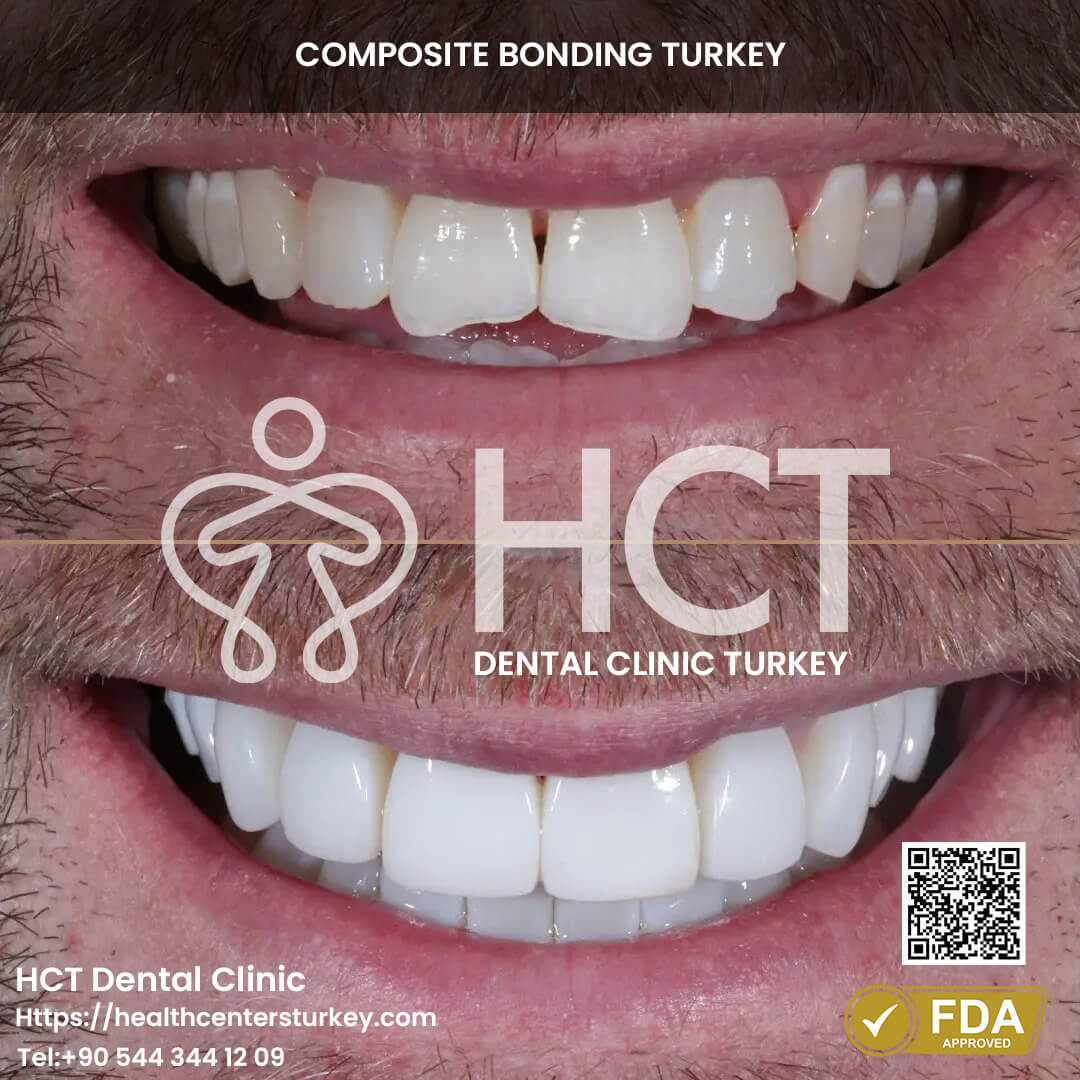Luxury Oral Care Packages targeting International Clients in Turkey

Dental implants have turn out to be a focal point in trendy dentistry, offering a reliable resolution for those going through tooth loss. Among the a number of benefits they provide, one vital side worth contemplating is their impact on adjacent teeth. Understanding how dental implants affect surrounding teeth aids in making informed selections about oral health.
When a tooth is misplaced, neighboring teeth can easily shift towards the space left behind. This movement can result in misalignment, which compromises the overall chew and performance of the mouth. Dental implants mimic natural tooth roots, thereby maintaining the place of adjacent teeth.
Enhance Your Well-Being with Quality Dental Care
The stability provided by an implant is essential, as it helps in preserving not just the bodily alignment but also the structural integrity of the jawbone. When a tooth is missing, the underlying bone can begin to deteriorate as a result of lack of stimulation. An implant exerts strain on the bone throughout chewing, similar to a natural tooth, which promotes bone health.
In some instances, a bridge or partial denture may be considered as an alternative to implants. While these choices may restore some functionality, they'll place additional stress on neighboring teeth. Bridges often require submitting down the surrounding teeth to accommodate the anchors, thereby affecting their health over time. Dental implants, however, don't alter current teeth, making them a more conservative selection.
Access Premium Dental Implants with Affordable Costs
Hygiene turns into one other important factor when considering adjacent teeth in the context of implants. With dental implants, the person can preserve a regular hygiene routine just like natural teeth. Flossing and brushing across the implant are easy, ensuring that the gum tissue remains wholesome and minimizing the chance of gum disease that might adversely affect adjacent teeth.
Moreover, the materials utilized in dental implants are biocompatible. This means they're designed to integrate well with the body, decreasing the probabilities of an opposed response. This attribute not solely makes the implant secure but additionally protects close by teeth from potential points that might arise due to contamination or infection.
In terms of aesthetics, dental implants supply a natural appear and feel, carefully resembling authentic teeth. Adjacent teeth profit from this aesthetic enchantment as nicely. When an implant is placed, the surrounding gum tissue can be shaped to mimic natural contours, thereby enhancing the overall appearance of the smile. This aesthetic factor can encourage individuals to invest in their oral care routines, benefiting each the implants and adjacent teeth in the long term.
Enhance Your Smile with Advanced Oral Health Techniques
Another concern is the potential for gum disease, which can affect the health of adjacent teeth. Gum disease can occur when plaque builds up around teeth and implants. Regular dental visits and appropriate oral hygiene can mitigate this concern. The presence of implants can also serve as a motivator for better dental hygiene practices, as individuals become extra aware of sustaining their total mouth health.
Studies have proven that dental implants can contribute to a big enchancment in quality of life. Patients typically experience increased confidence and are much less hesitant to smile or have interaction in social interactions. A wholesome and well-maintained smile not directly promotes better care for adjacent teeth, as individuals are inclined to turn out to be more aware of their overall oral hygiene.
One often-overlooked aspect is the psychological impact of dental implants on sufferers. Knowing that implants supply long-term solutions can ease the anxiety associated with tooth loss. With fewer worries about future tooth shifts, sufferers are extra doubtless to make investments effort and time into caring for their teeth, which includes adjacent teeth.
In conclusion, dental implants function more than only a resolution for missing teeth; they play a pivotal role in sustaining the health and integrity of adjacent teeth. From preventing misalignment to selling gum health and enhancing aesthetics, the advantages are manifold. By opting for implants, people can not solely restore functionality but also foster a more healthy oral environment for surrounding teeth. The psychological and aesthetic advantages further contribute to an total enhanced quality of life.
High-quality Veneers for a Stunning Smile in Turkey
In the long try this term, understanding how dental implants have an effect on adjacent teeth can guide people in making empowered choices relating to their dental health. The integration of these implants into the mouth acts as a stabilizing drive, safeguarding both the bodily alignment and functionality of neighboring teeth, whereas promoting a long-lasting, healthy smile.
- Dental implants usually do not exert stress on adjacent teeth, maintaining their integrity and lowering the risk of shifting or misalignment.
- The placement of an implant typically encourages higher oral hygiene habits, positively influencing the health of adjacent teeth via improved cleaning practices.
Comprehensive Dental Packages Featuring Cosmetic Options
- In some instances, dental implants can stimulate the encircling bone, which helps preserve the natural teeth's place and overall dental structure.

- The hole left by missing teeth can result in bone loss; dental implants can prevent this, thereby protecting adjacent teeth from potential complications.
- Innovative Dental Procedures to Suit Your Needs
Discover the Most Advanced Dental Technologies Available in Turkey
- By restoring the function of a missing tooth, implants assist distribute chew forces evenly, reducing put on and stress on neighboring teeth.

- Properly positioned dental implants can act as a assist structure, stopping undesirable motion of adjacent teeth ensuing from tooth loss.
- The presence of an implant could improve the aesthetic appearance of surrounding teeth by filling in gaps and supporting facial structure.
Affordable Whitening Solutions for a Radiant Smile
- Dental implants eliminate the need for adjacent teeth alteration, unlike bridges, which require reshaping the close by teeth for assist.
- Implants additionally cut back the chance of gum disease in comparability with different tooth replacement choices, indirectly benefiting adjacent teeth by promoting overall oral health.
Affordable Dental Care Packages in Turkey for Implants and Cosmetic Dentistry.
- Long-term success of dental implants is linked to the health of surrounding teeth, emphasizing the importance of regular dental check-ups and maintenance.
How do dental implants affect adjacent teeth?
Explore Best Dental Treatments in Turkey including Implants, Veneers, and More
What are dental implants and the way do they work with adjacent teeth?undefinedDental implants are synthetic tooth roots positioned into the jawbone to help replacement teeth. They don’t affect adjacent teeth immediately, as they are independent structures. Instead, they can help maintain the integrity of surrounding teeth by preventing bone loss.
Can dental implants trigger harm to adjacent teeth?undefinedIf positioned appropriately, dental implants should not harm adjacent teeth. However, improper placement can result in points like misalignment or strain, emphasizing the importance of choosing an skilled dental skilled.
Will dental implants promote bone progress around adjacent teeth?undefinedYes, dental implants help stimulate the jawbone, which might encourage bone development. This can profit adjacent teeth by maintaining bone density helpful resources and stability in the space.
Uncover Budget-friendly Dental Treatments in Turkey
Should I fear about gum disease affecting adjacent teeth after getting an implant?undefinedGood oral hygiene is crucial after getting an implant. Gum disease can still have an result on adjacent teeth, however a properly maintained implant does not enhance that risk. Regular dental visits might help monitor and keep gum health.
What happens to adjacent teeth if I lose a dental implant?undefinedIf a dental implant fails or is misplaced, adjacent teeth might shift because of changes in chunk alignment and help structure. This could result in misalignment or further tooth loss if not addressed.
Are there any special care necessities for adjacent teeth after getting implants?undefinedMaintaining good oral hygiene practices, including regular brushing, flossing, and dental check-ups, is crucial for both dental implants and adjacent teeth to prevent decay and gum disease.
Tailored Treatment Approaches to Fit Your Lifestyle
Do dental implants help assist adjacent teeth when chewing?undefinedAbsolutely. Implants can enhance overall chew function, which may alleviate stress on adjacent teeth throughout chewing. This can result in higher distribution of forces, promoting oral health.
How can I prevent complications with adjacent teeth and implants?undefinedConsistent dental care, including professional cleanings and examinations, common brushing and flossing, and following your dentist’s aftercare directions, are key to stopping problems.
Can adjacent teeth move if I truly have a dental implant?undefinedAdjacent teeth may transfer if they aren't well-supported, especially after tooth loss. A dental implant helps maintain the structure, decreasing the risk of shifting teeth.
Comments on “Exceptional Teeth Treatments Offered to International Patients in Turkey”